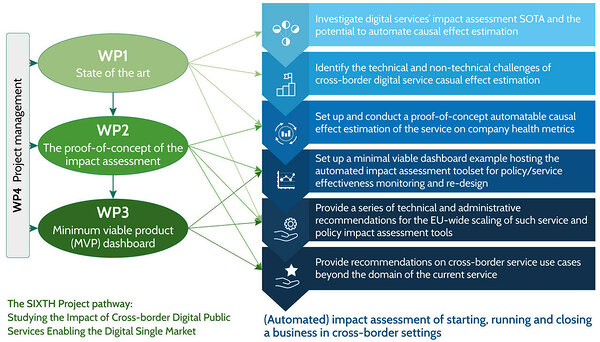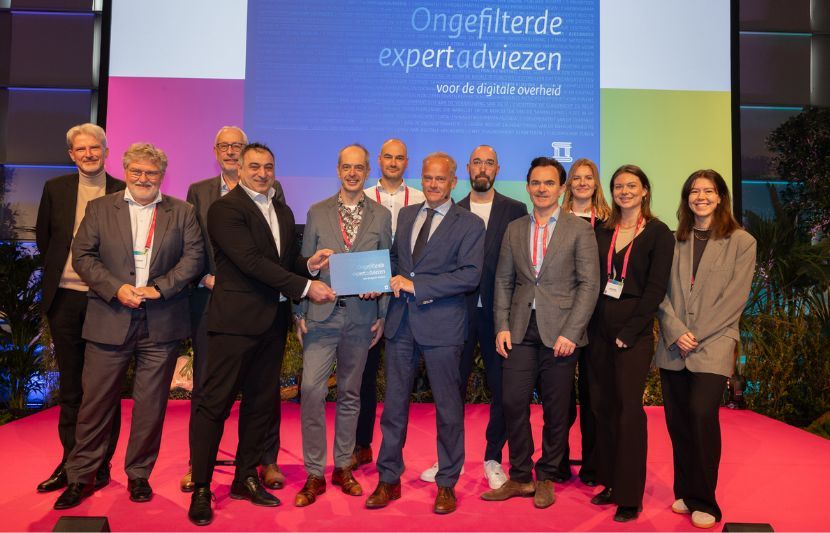The Single Digital Gateway Regulation mandates cross-border access to 21 public services by end of 2023 which will greatly improve citizens’ access to information and public services. Ideally every such policy intervention is followed by an impact assessment (IA) and redesign effort. In reality the identification of causal effects of polices tend to come late and stay static. The development of digitalized services, which by design involves exchanging machine-readable data between registries, presents the opportunity to include IA into the design of the services. It also enables quantitative IA with low administrative burden and ease-of-use for service consumers. The advent of cross-border digital services presents the opportunity to extend this logic beyond national borders. However, this also introduces new challenges in data access.
This project proposes to conduct a proof-of-concept study on automating IA of digital services to allow for a continuous monitoring of the effects of such a policy change. Working within the digitally advanced countries of Belgium, Estonia and Slovenia we will conduct a proof-of-concept IA pilot using existing cross-border services designed to start, run and close a business. We will do this in two steps: first, we will build a proof-of-concept impact assessment application (data integration, model and causal effect visualization) on selected company demographics which should be affected by cross-border services. Then we shall develop a minimal viable product (MVP) in the form of a dashboard where users can examine the real-time causal effect of cross-border services on Belgian, Estonian and Slovenian company demographics. The MVP will be designed to be automated and free of the need of human intervention and present the updated causal effect estimations in line with the data renewal schedule and the unfolding of the underlining phenomenon – company health demographics.
The project is structured as follows:The project is funded by the CELSA Research Fund.







Comments